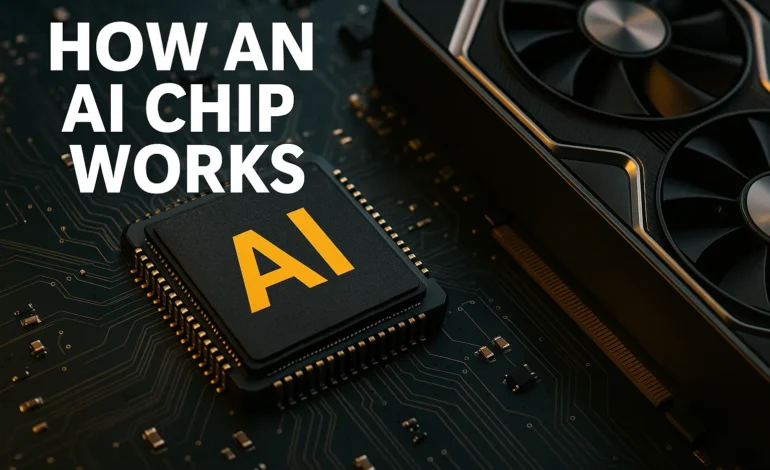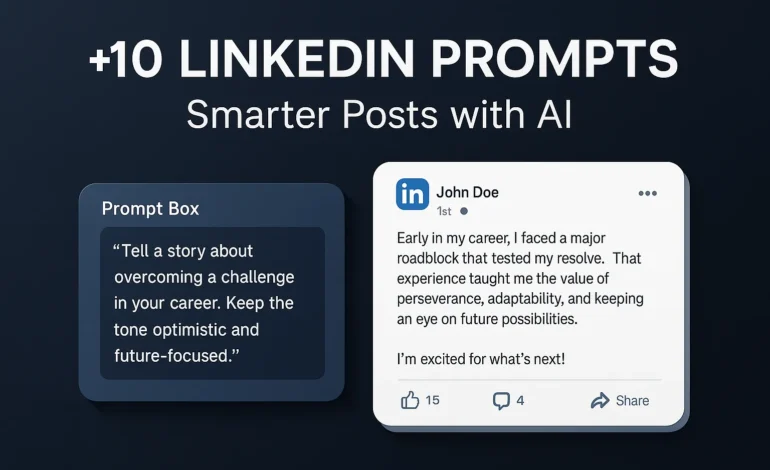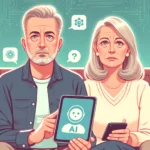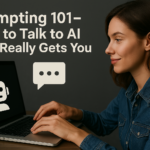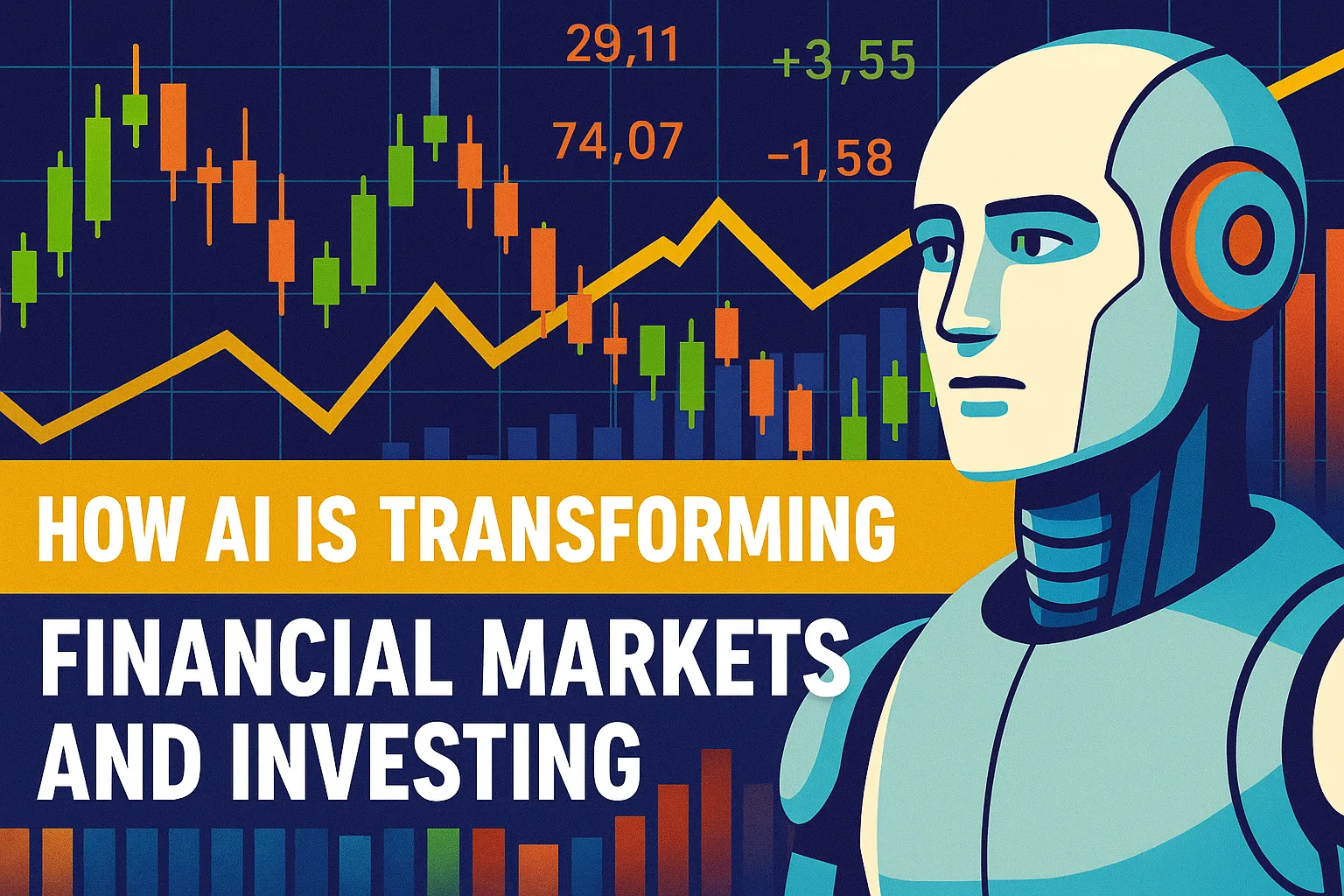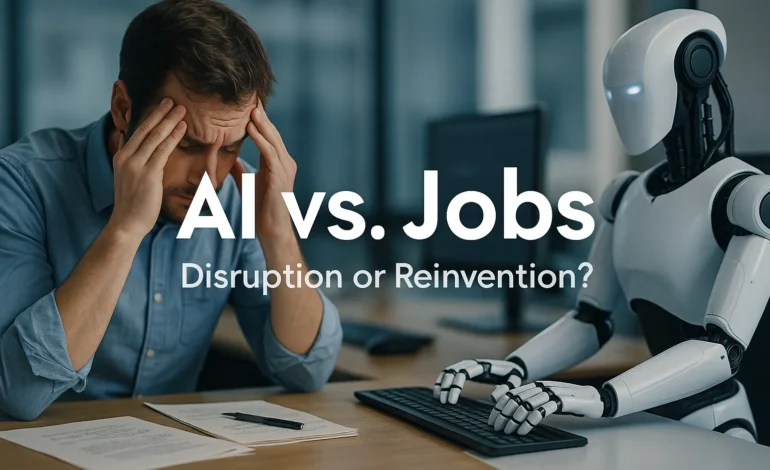
Will AI Replace Our Jobs? What Automation Really Means for Work
From the printing press to the steam engine, every major technological leap has sparked fears of job loss. And in many cases, those fears were justified—at least temporarily. Industrial machines replaced weavers, robots replaced factory workers, and software replaced typists. But in nearly every case, new jobs emerged alongside the old ones, often requiring different skills and offering higher productivity.
That historical pattern has shaped how we talk about automation today: disruption, followed by adaptation. But with artificial intelligence, many economists, workers, and even technologists sense that something is different this time. And they’re not wrong to ask: what if this wave doesn’t follow the old script?
In 1800, over 70% of Americans worked in agriculture. By 2020, that number was under 2%. The jobs didn’t disappear—they shifted into industry, services, and knowledge work. The fear now is that AI might automate the very sectors people previously shifted into.
Unlike machines that replaced muscle, AI threatens to replace minds. It can generate text, write code, review contracts, create images, and analyze data. In other words: it targets the “knowledge economy” itself—an area previously seen as automation-proof. That distinction changes not just the economics, but the psychology of job loss. White-collar workers, long shielded from disruption, are suddenly in the crosshairs.
And the timeline isn’t decades away. It’s already started. From automated news writing to AI-powered legal research, the tools are being quietly integrated into everyday workflows—sometimes supplementing, sometimes replacing.
So where is AI having the biggest impact today? Not in entire professions, but in specific tasks. A graphic designer still conceptualizes campaigns—but AI now generates drafts. A financial analyst still interprets numbers—but AI pre-screens the data. A lawyer still argues the case—but AI drafts the boilerplate.
This fragmentation of work—breaking jobs into tasks that can be automated—means the future of employment may not be binary (job vs. no job), but gradual erosion: fewer hours, lower pay, reduced skill depth. And that’s harder to detect in statistics, but deeply felt in lives.
Chatbots powered by AI now handle up to 80% of standard inquiries at large enterprises. While many companies still employ human agents, the volume of entry-level support roles is already shrinking—and fast.
How many jobs are really at risk? Estimates vary—sometimes wildly. A 2023 report by Goldman Sachs projected that 300 million jobs worldwide could be affected by generative AI. The OECD warned that nearly 27% of jobs in member countries face “high risk of automation.” But affected doesn’t mean eliminated. Many roles will evolve, not vanish.
The real shift lies in **task automation**, not wholesale job destruction. Most roles combine routine and non-routine work. AI is good at the former, mediocre at the latter. But as models improve—especially in reasoning and planning—this line may blur. And for jobs built mostly on routine analysis or content generation, the danger is real.
And the disruption won’t be evenly distributed. Higher-paying, creative, or socially embedded roles (e.g. managers, teachers, caregivers) may adapt. But mid-skill, process-heavy roles—customer service, paralegals, junior marketing, data analysis—are in AI’s crosshairs. Ironically, entry-level knowledge work, once seen as a stepping stone, could become the first to go.
Without policy intervention, AI adoption could amplify income and opportunity gaps. Those who own or understand the technology win—those replaced by it fall behind.
That’s why reskilling and education matter more than ever. But are we actually preparing people for what’s coming? Most educational systems still reward memorization, linear reasoning, and rigid specialization—skills that AI can now outperform.
The future will demand something different: adaptability, cross-disciplinary thinking, creativity, and emotional intelligence. Soft skills are becoming hard requirements. The ability to ask good questions, judge ambiguous situations, or lead humans—not just operate tools—will define employability.
Some countries are beginning to respond. Singapore has launched national AI literacy campaigns. Germany invests in lifelong learning infrastructure. But most nations remain reactive, leaving workers to figure it out alone in a job market shifting under their feet.
In 2022, IBM estimated that more than 40% of its global workforce would need to reskill within the next three years due to AI integration—not because of layoffs, but role evolution.
Some thinkers believe we’re approaching a post-work era. If AI becomes truly general-purpose—capable of learning any skill, adapting across domains, and working 24/7 without cost or fatigue—what happens to the human role in the economy?
One answer is **universal basic income (UBI)**. Proposed as early as the 1960s and revived by figures like Andrew Yang, UBI suggests decoupling income from employment. In a world where machines do the work, people would receive a baseline income to cover essentials—freeing them to pursue creative, civic, or caregiving roles.
Critics warn that this would disincentivize work or collapse purpose. Supporters argue it’s already happening: the social contract is breaking, and UBI is a stabilizer, not a reward. Trials in Finland and Canada have shown promise—higher well-being, modest increases in entrepreneurship, and no collapse in workforce participation.
But money is only part of the equation. Humans don’t just work for income—we work for identity, purpose, and belonging. If AI reshapes work, it risks reshaping the core of how we see ourselves. A coder replaced by Copilot. A writer outpaced by ChatGPT. A student told the system can “learn faster.” The psychological cost is real—even when the financial impact is cushioned.
This is where the real challenge lies: not just economic reorganization, but existential recalibration. What does it mean to be valuable in a world where intelligence itself is becoming automated?
If AI outperforms us in knowledge, logic, and creation—what remains distinctively human? Our values? Relationships? Consciousness? These aren’t technical questions. They’re civilizational ones.
The future of work won’t be decided by technology alone. It will be shaped by the policies we write, the systems we fund, the ethics we embed, and the cultures we create. AI might replace jobs. But whether it replaces dignity, opportunity, or identity is still up to us.
In a Nutshell
AI won’t erase all jobs—but it will reshape the labor market, shift required skills, and challenge long-held assumptions about purpose and value. Some roles will vanish, others will emerge, and many will evolve beyond recognition. The challenge is not to stop AI—but to steer its impact toward inclusion, fairness, and meaningful human contribution.

